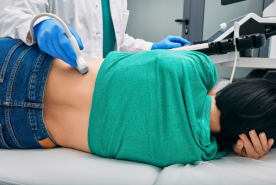Good dental care is crucial for people with kidney disease. Infections from dental issues can worsen kidney health. Regular check-ups and good hygiene are essential.
Good dental care is important for everyone, but especially for people with kidney disease. What might be a minor infection for a healthy person could be major problem for someone with kidney disease. Here’s a bit to explain more:
Germs attack (that’s infection). The body fights back (inflammation). “Inflammation” means “in flames,” which makes sense because an inflamed area can be red, hot and swollen.
In short, for battles with infection, inflammation is good because it helps the body kick into defense mode and gear up to kill germs. However, chronic or stubborn infections create continuous inflammation, which is harmful. Dental cavities and gum diseases are chronic bacterial infections. In addition to causing pain, difficulty eating, and mouth odors, dental cavities and gum infections can contribute to other problems by fueling harmful chronic inflammation. Also, germs that cause cavities and gum disease don’t stay put and may spread throughout the body, especially if your immune system is weak. Infections can be serious, even resulting in hospitalizations. Be sure to tell your dentist you have kidney disease, are on dialysis or are a kidney transplant recipient.
For People on Dialysis
Healthy teeth are important to be able to chew high-quality protein foods such as meat, fish, and poultry. Also, people on dialysis may receive a blood thinning medicine during their dialysis treatments to prevent clotting. Because some dental procedures can cause bleeding, it’s important to schedule dental appointments on non-dialysis days.
For Transplant Candidates and Recipients
A dental health exam is required as part of the kidney transplant evaluation process. Serious dental infections can delay, even prevent, being approved for a kidney transplant. This is because, after receiving a kidney, the medications used to prevent rejection of a transplant further weaken the body’s defenses against infection. Therefore, prior to a transplant, patients are generally screened and treated for all infections, including dental, to prevent post-transplant complications.
Medicare will cover the exam needed for “dental clearance,” but not the treatment that may be required if issues are found. If you cannot afford treatment, your transplant team may be able to suggest possible resources.
To help avoid any serious dental issues, preventing and quickly treating infections is essential!
Excellent oral hygiene will remove bacteria that cause decay and gum disease. Some helpful and easy suggestions:
- Brush twice daily with a soft bristle brush and, ideally, floss once a day (or use a floss substitute such as opal-pix). “Thorough” is key. Take your time. Three surfaces on each tooth need to be brushed, and the two side surfaces flossed.
- Use a fluoridated toothpaste to help strengthen teeth against development of cavities. Your dentist may also suggest using fluoride or antimicrobial rinses.
- You may have a “dry mouth” as a side effect of some drugs used to treat kidney diseases. That makes it easier for cavities and gum diseases to develop. To increase saliva, try chewing sugarless gum or sucking on sugarless candy. You can also try a saliva substitute, such as Biotene.
- Regular dental exams, at least twice a year, can detect and treat cavities and gum disease before they become serious. A cleaning is helpful, too, by scraping away tartar that irritates the gums.
- Full or partial dentures should be carefully cleaned daily and removed at night to prevent development of sore spots or ulcers.
Need help paying for dental services?
Dental Lifeline Network's Donated Dental Services (DDS) may be able to help. Learn more and see if you qualify.
















